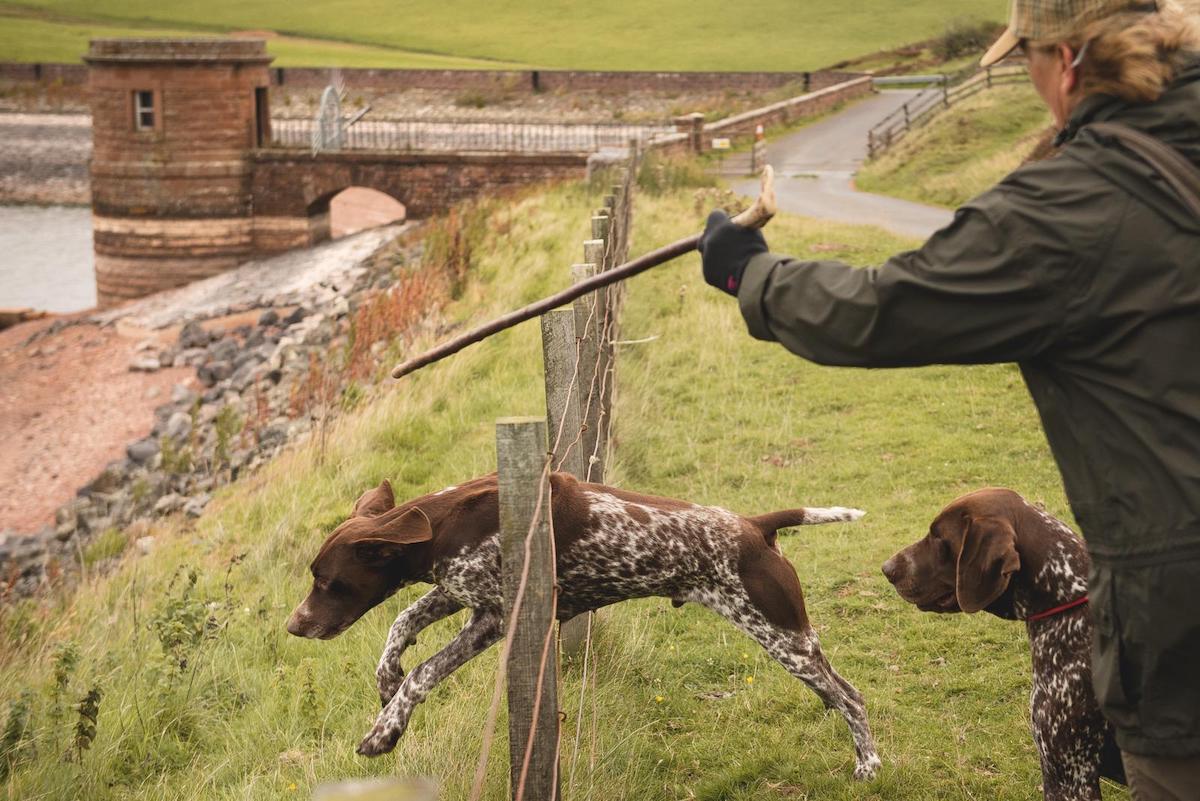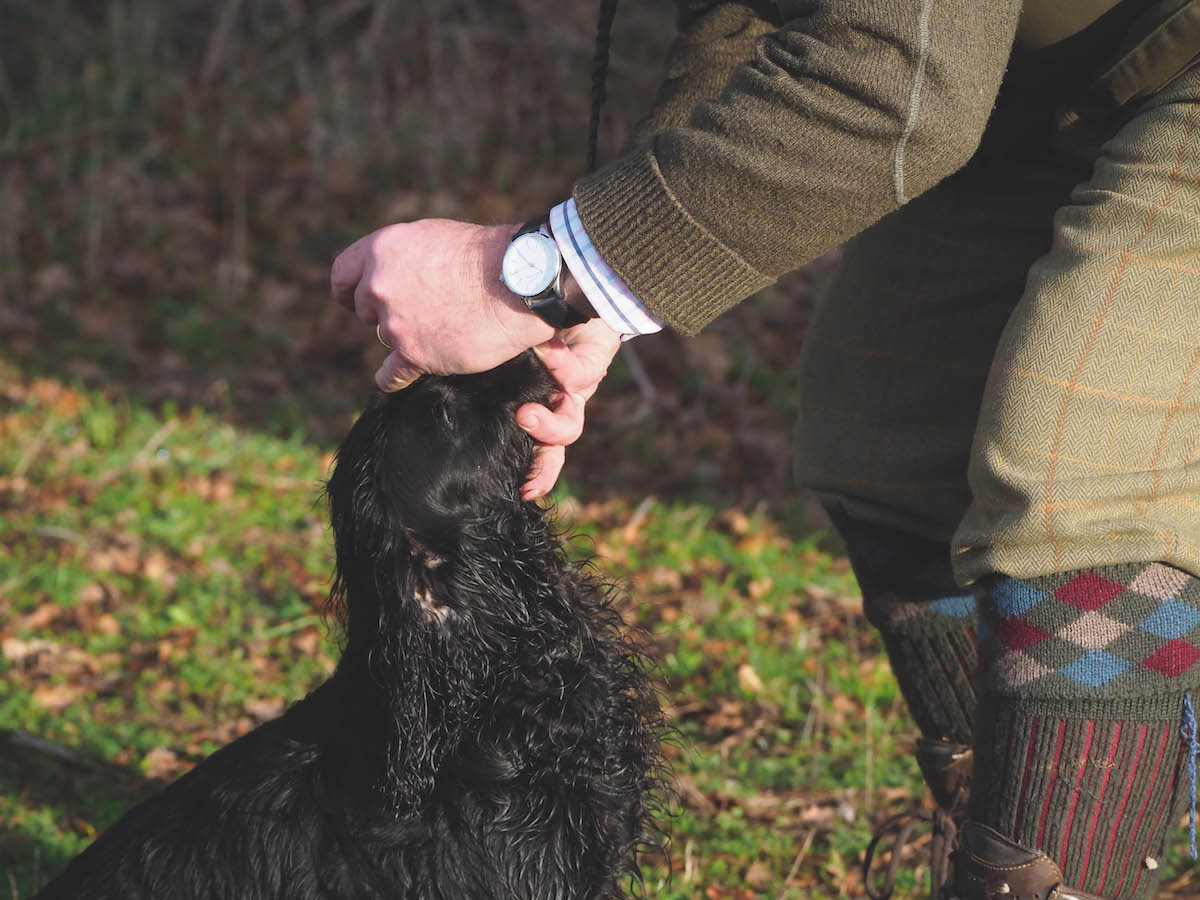Should you neuter your dog?
At what age should you neuter your dog - and should you neuter it at all? No, says David Tomlinson, if it's purely for convenience

Too young to be neutered?
Neutering dogs has become such routine practice that I’m sure many people don’t give it a second thought.
Bitches always seem to come into season at the most inappropriate time, such as the middle of the shooting season, so unless you want to breed from them there is a strong argument for having them spayed. Similarly, randy dogs can be an embarrassment, especially if they are aggressive, so castration seems to be a simple solution.

Bitches have an irritating habit of coming into season at the most inappropriate time
Opinions vary widely among dog owners and vets on neutering. For most vets, it is routine surgery that pays well and if you decide to have your dog neutered, there are not many who will try to persuade you to change your mind. One who will is Mark Elliott, whose Chichester-based practice South Down Veterinary Consultancy is much involved with sporting dogs.
Problems with neutered dogs
Mark’s clinical experience suggests that there are far more problems with neutered animals than those that are left entire. He is convinced that the main reason for neutering is for our own convenience, not for the health of the dog. His radical views surprise many of his clients, so he has recently produced a paper entitled Neutering Your Dog — Making an Informed Decision. It makes fascinating reading.
I was intrigued to discover that Britain has one of the highest number of neutered dogs of anywhere in the world — around 80 per cent. In the US it is around 83 per cent for male dogs, but less for bitches. Routine neutering is banned in three European countries; just imagine the furore if there was a threat of a ban here.

There is a growing trend towards neutering puppies before they go to their first home
There are many perceived advantages of neutering of which the most obvious are the prevention of accidental pregnancies leading to unwanted puppies, and making male dogs better behaved and less likely to roam. One I hadn’t thought of was that early neutering allows breeders to prevent their bloodlines being used by others. There is a new and nasty trend to send puppies to their new homes, already neutered, at eight weeks. Such early neutering can lead to a host of problems, ranging from allergies to growth, and can also make the dog aggressive and untrainable.
Mark disputes the commonly held view that neutering is a health benefit but does admit that finding evidence is not always easy because “it is always difficult to research a negative result”. With bitches, the most obvious benefit of spaying is a marked decrease in mammary tumours, but even this might not be true. The original study was made 50 years ago and is not now regarded as entirely sound.
Spayed bitches suffer a much greater likelihood of incontinence. This varies from breed to breed, with one study showing that 34 per cent of Irish setters suffered after being spayed, but only 6.8 per cent of springers, 3.2 per cent of Labradors and two per cent of cockers.

It is believed that early neutering can lock dogs into a state of permanent puppyhood
Aggression
One of the most common assumptions that the paper disputes is that neutered dogs are better behaved. Intriguingly, the most commonly observed problem with spayed bitches is fearful behaviour, while for dogs it is aggression — the reason that many dogs are castrated in the first place. Mark believes that some dogs that are neutered early become adult-sized animals locked into a state of permanent puppyhood.
Studies on several thousand golden retrievers showed that neutered animals were more likely to develop hypothyroidism (underactive thyroid), particularly those that were neutered when very young. Hypothyroidism can lead to numerous other problems, including lethargy, slow heart rate and skin infections, while there is evidence that dogs suffering from this condition are far harder to train.
Rupture of the canine cranial cruciate ligament (CCL) remains the most common orthopaedic problem seen in veterinary practice around the world. There is also increasing evidence that early neutering may affect the development (conformation) of the tibia and other long bones in a dog.
Why you should beware of early neutering
David Tomlinson recently wrote about the physical downsides of early neutering for dogs of either gender, but the behavioural effects…
Should we neuter dogs? When is the best time and what are the health implications?
We take neutering of dogs for granted. But should we? When to neuter your dog – and the behavioral risks…
Advice on spaying gundogs
To spay or not to spay? It’s a question that faces most of us who own or work bitches, and…
What is worrying is that neutering has become accepted practice with most pet dogs. According to Mark: “Clinically the arguments for neutering do not stack up to much at all and it may be a negative action when looking at their long-term health. While for bitches there are some apparent health benefits, they are still minimal when compared with the long-term health issues should the individual be unfortunate enough to suffer them.”
Mark strongly believes that early neutering without explaining the potential risks is unethical, and I’m sure most of us agree.
I’ve only ever had one of my dogs neutered — my current springer bitch, Rowan. She was spayed at the age of four when we found mammary tumours. These turned out to be benign. Perhaps she has been lucky, but in the eight years since she has only been back to the vet for her annual check-up, making her the healthiest dog that I’ve ever owned. I wouldn’t rule out neutering a dog, but I do think that it needs far more careful consideration than it usually receives.











